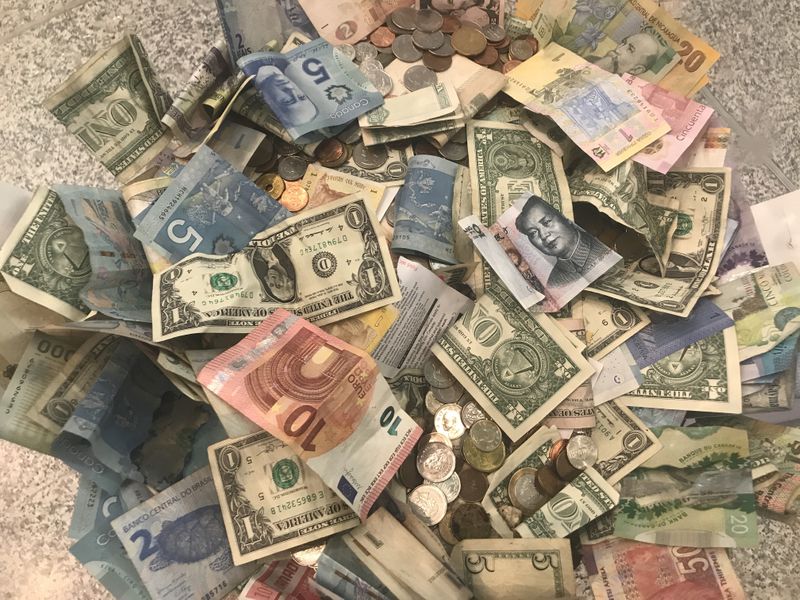By Stanley White
TOKYO (Reuters) - Commodity currencies slipped against their safe-haven rivals such as the dollar and yen on Monday as a record output cut agreed by OPEC and other oil producing nations failed to offset broader concerns about slumping global demand.
The greenback drifted higher against its Australian and New Zealand counterparts, widely seen as barometers for market risk, in a sign investors remain concerned about the consumption outlook for commodities.
Financial markets remain on edge over the spread of the novel coronavirus as severe restrictions on personal movement drag the global economy into a deep recession.
"The initial reaction suggests that the decline in oil demand is well ahead of the output cuts that were agreed," said Yukio Ishizuki, FX strategist at Daiwa Securities in Tokyo.
"This is a negative for oil producers. This also encourages risk-off trading, which should support the yen."
The dollar rose 0.63% against the Norwegian crown
Against the Canadian dollar
Trading could be somewhat subdued as financial markets in Australia, New Zealand, Hong Kong, and Britain are closed for the Easter Monday holiday.
Major oil producers agreed to the output cuts on Sunday to prop up oil markets as the pandemic severely curtailed global demand.
Oil prices had gone into freefall on worries about the virus and a price war between Saudi Arabia and Russia, which was seen straining the budgets of oil producers and hammering the U.S. shale industry.
Currencies from Norway, Mexico, and Canada - all major oil producers - got a boost on Friday as the agreement to cut output began to take shape, but these gains disappeared on Monday as investors avoided risk assets.
While oil futures erased early losses to trade higher in Asia, trading in currency markets highlighted investor trepidation over the prevailing uncertainty in markets.
Other currency traders pointed to a decline in U.S. stock futures as a supportive factor for risk-off trades.
The cautious mood boosted the yen, which is often sought as a safe-haven during times of market and economic stress because of Japan's current account surplus.
The yen
In the onshore market, the yuan
China is expected to release export data for March on Tuesday, which will be closely watched for signs of the pandemic's damage on the global economy.
Against the safe-haven Swiss franc
The dollar traded at $1.0928 per euro (EUR=EBS), near its lowest level in more than a week.
Further declines in the dollar may be limited with speculative net short positions in the U.S. currency having risen to their highest since May 2018, according to calculations by Reuters and U.S. Commodity Futures Trading Commission data.
The Australian dollar
The pound

Sterling retained gains made after Prime Minister Boris Johnson left hospital for treatment of COVID-19, the illness caused by the coronavirus.